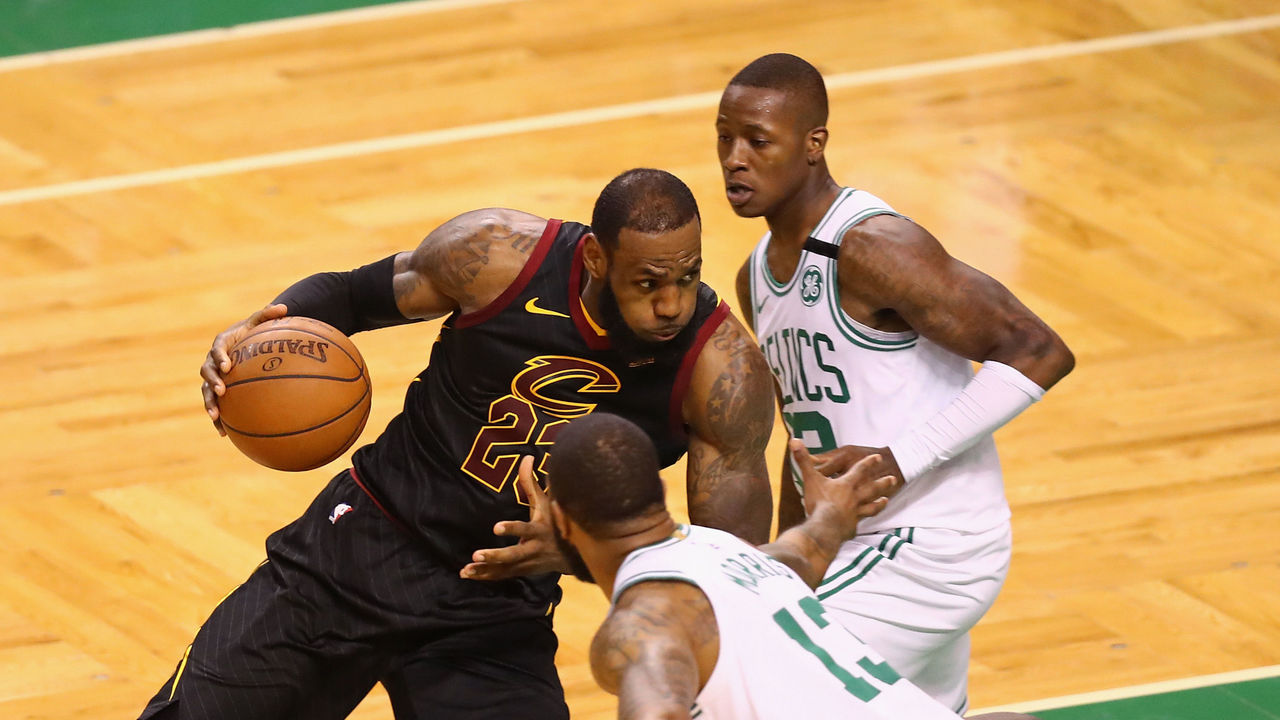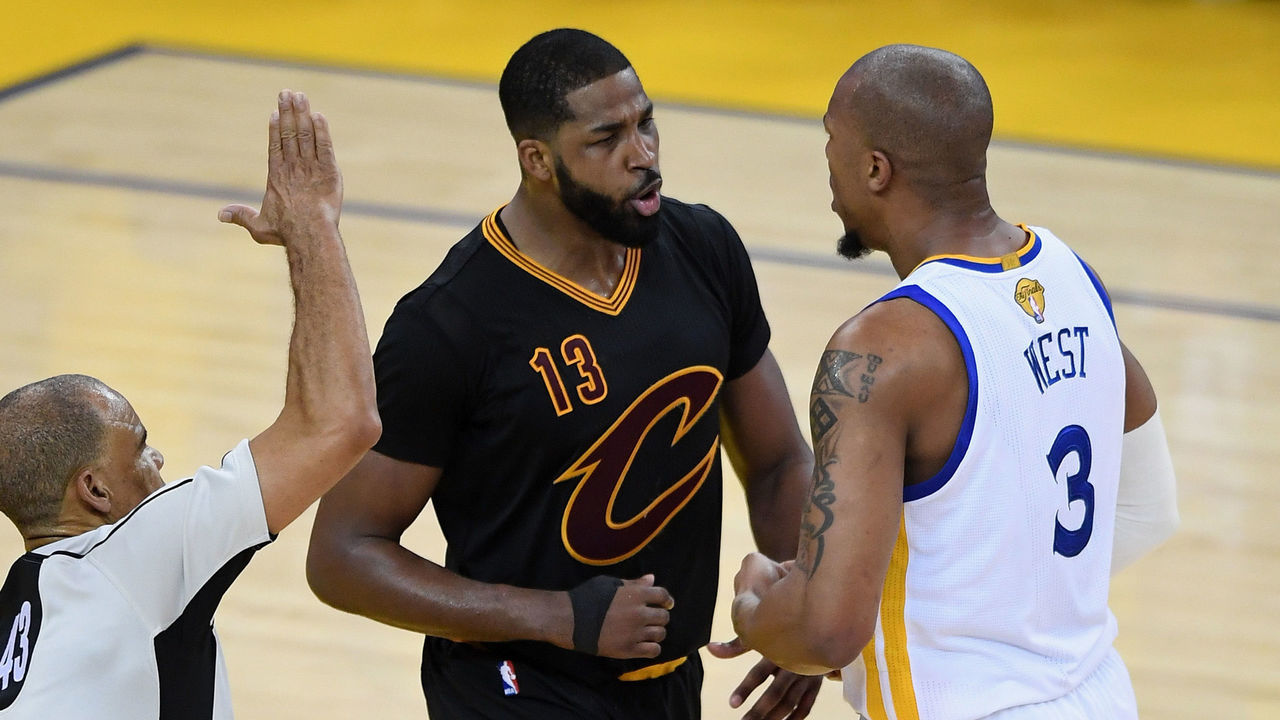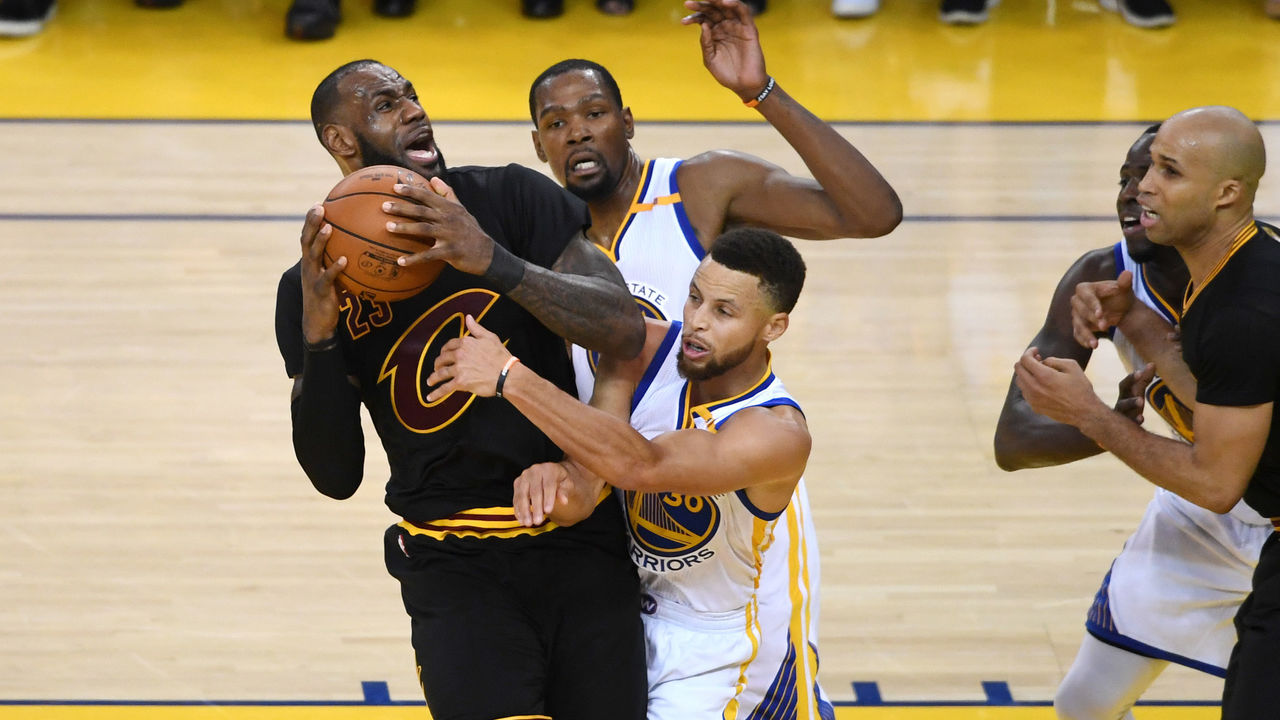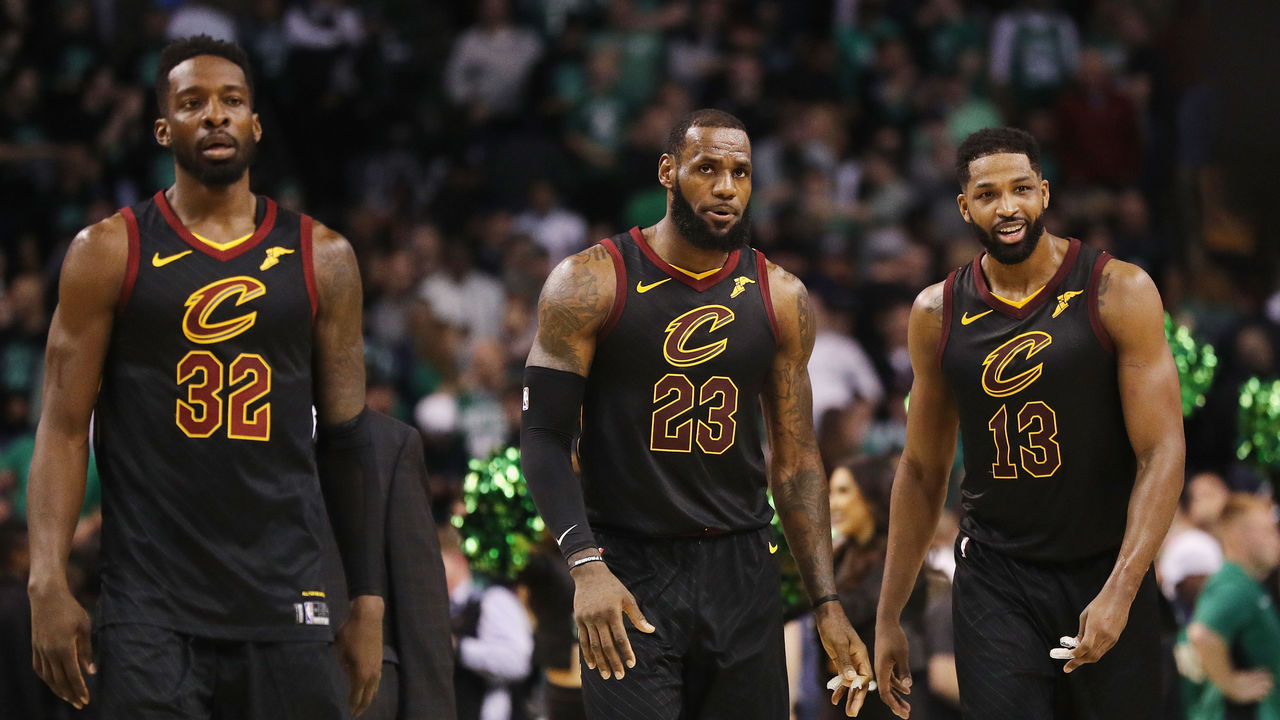5 things the Cavs need to do to have a chance against the Warriors
After squeaking out a pair of unconvincing seven-game series wins over the Indiana Pacers and Boston Celtics - sandwiched around a decidedly convincing four-game sweep of the Toronto Raptors - in the Eastern Conference playoffs, the Cleveland Cavaliers will run up against the Golden State Warriors in the Finals for a fourth straight year.
The matchup, though, isn't quite what it once was, and this year's version looks far more lopsided in Golden State's favor than the three that preceded it. The Warriors tilted the balance of power last season by acquiring Kevin Durant, and the Cavs tilted it further this season by dealing Kyrie Irving for what has ultimately amounted to three non-contributing role players and the No. 8 pick in the draft.
For all LeBron James' age-defying brilliance, the stacked Warriors justifiably open as massive favorites, and Cleveland will be hard-pressed to even make the series competitive. But there are a few things the Cavs can do that should, if executed perfectly, at least give them a fighting chance.
Here are five ways they can make the Warriors uncomfortable:
Hunt mismatches for LeBron

Cleveland's most reliable source of offense against the Celtics stemmed from pick-and-rolls involving James and a guard, designed to force switches and get James a mismatch on a smaller Celtics defender (usually poor Terry Rozier). From that position, James was able to either get to the low block without much issue, or, when the Celtics sent help, rifle passes out to open shooters. As the series progressed, James figured out how to make the Celtics pay when they tried to negate the mismatch with a secondary switch that pulled Rozier off the assignment before the post entry pass arrived. He started anticipating that switch and slinging skip passes to the weak side Boston frequently got bailed out by ice-cold Cavs shooting, but they didn't really have a viable counter.
The Cavs should look to employ that same tactic against the Warriors, with Steph Curry as the primary target. We saw that work for the Rockets with James Harden as the attacker, and while Curry fared better and better against an increasingly tired Harden as the series went along, James poses an entirely different physical challenge. The Warriors didn't have much success when they tried to scrap the switch in favor of hedging on Harden pick-and-rolls, and they would likely need to send double teams (or try mimic the Celtics' "scram" switches) to keep Curry out of foul trouble. Either way, having James target Curry as often as possible figures to give the Warriors some headaches.
Force the Warriors to play big

For the Cavs to have any chance, they need Tristan Thompson to have a huge series on both ends of the floor. The Warriors' most effective lineups do not feature a traditional center, and opposing teams (most recently the Rockets) have sought to exploit those units' interior vulnerabilities by getting physical and crashing the offensive glass. Few players can do that as effectively Thompson.
The rub, of course, is that the Warriors will gladly surrender a few offensive boards and garbage buckets to a bruising center if they can attack him in space at the other end. In order to win the trade-off, Thompson also needs to be able to hang with Curry and Durant on switches. Clint Capela's ability to do so made him a major difference-maker in the conference finals. Thompson's own ability to hang with Curry (who was coming off an MCL sprain, then as now) was a big reason the Cavs managed to stun the Warriors in the 2016 Finals.
Perhaps the most important chess move in this matchup is which team can force the other to adjust. If the Cavs can make the Warriors pay for going small, and subsequently force them to feed more minutes to the likes of Kevon Looney, Jordan Bell, and David West, that would count as a significant win.
Control the tempo

In the 2015 Finals, the Cavs managed to throw a scare into the Warriors despite playing without Irving and Love and despite the fact that Timofey Mozgov was their second highest-usage player. In the 2016 Finals, they managed to overturn a 3-1 deficit (with two road wins to boot) to topple a 73-win team. One common denominator: Cleveland managed to dictate the pace of both those series, dragging the Warriors into the muck and forcing them to play six possessions per game slower than they had during the regular season. In last year's series, which the Cavs lost in five games, the Warriors' pace actually increased, to a rate that would've ranked as the fastest in the league this season.
A slower game has always favored the Cavs, and that's only become more obvious this year, when the team is as old and slow as it's been at any point during this four-year rivalry. They've played at the second-slowest pace of any team in this year's playoffs, and the only team that ranks lower is the Pacers, who played the Cavs in the first round. Cleveland needs to make this a halfcourt series. Playing James iso-ball may not be an aesthete's idea of a good time, but it can be effective against the Warriors. It should help limit turnovers, which should in turn limit Golden State's deadly transition game. To that effect, crashing the offensive glass could backfire on the Cavs, but if they do it effectively, it might force the Warriors to gang rebound on defense, thus kneecapping their ability to run off misses.
Ultimately, this is as much about math as anything. The Warriors are the more talented team, so the more possessions there are in a game, the lower the chance of random variance tilting things in the Cavs' favor. Fortunately for them, James might be the best in the business at grinding a game down, managing the clock, and conjuring buckets from thin air. If anyone can single-handedly control the pace of a series, it's him.
Do it with defense

It's hard to say the Rockets laid out a defensive blueprint for pushing the Warriors, since so much of what they were able to do was made possible by their specific personnel group, and Cleveland can't hope to replicate that formula with their own aging group. But they can at least apply the lessons those Rockets offered. Namely, that switching everything is a pretty good way to knock the Warriors out of their motion-heavy, pass-happy offense.
Getting into a shootout with the Warriors is not a recipe for success. Even the Rockets, who this season produced the third-best offensive rating in recorded history, had to win with defense. They might have performed better offensively had they played Ryan Anderson more in the series, but his brief, disastrous stint in the second half of Game 7 illustrated pretty clearly why that approach wouldn't have worked. The Warriors targeted him relentlessly and opened up a lead that they would not relinquish.
The Cavs have quietly been passable on defense in the playoffs, posting a 105.9 defensive rating that would've ranked 15th during the regular season. And they showed in the conference finals against the Celtics (particularly in Game 7) that they have the personnel to craft defense-first lineups that can switch seamlessly across all positions. They held Boston to 89.6 points per 100 possessions in Game 7. For all the massive caveats there - the Celtics missed a ton of open shots, Jeff Green played the game of his life, Golden State's offense is a zillion times more dangerous than Boston's - it's clear this is a far cry from the unit that finished 29th in defensive efficiency in the regular season. And their lineup of James, Green, Thompson, George Hill, and J.R. Smith can, on its best day, create a reasonable facsimile of Houston's switch-everything approach.
That said, the Cavs still need to score somehow, so this all raises an interesting question about Love's role in the Finals (assuming he's even healthy enough to play). The Cavs desperately need him on offense, both as a release valve, a secondary playmaker, and a 3-point threat who can draw Draymond Green out of the paint. But on defense, the Warriors will target him as ruthlessly as they did Anderson. If he can't hang at that end of the floor, Cleveland may have to turn to Green and hope he can replicate that Game 7 performance, multiple times.
Bring the energy and intensity
The Warriors' Achilles heel all season has been their own inability (or unwillingness) to play at top gear for any sustained stretch, and there were moments in the conference finals in which they didn't seem to know what to do with the Rockets' relentlessness and hunger. It's simplistic to say so, but the Cavs need to bring that same fire, the same overwhelming physicality. The Rockets were all out of gas by series' end, but it also felt like they came close to breaking the Warriors' spirit. Do the Cavs and their ancient legs have enough left in the tank to do the same? It seems implausible, but never put anything past LeBron James.